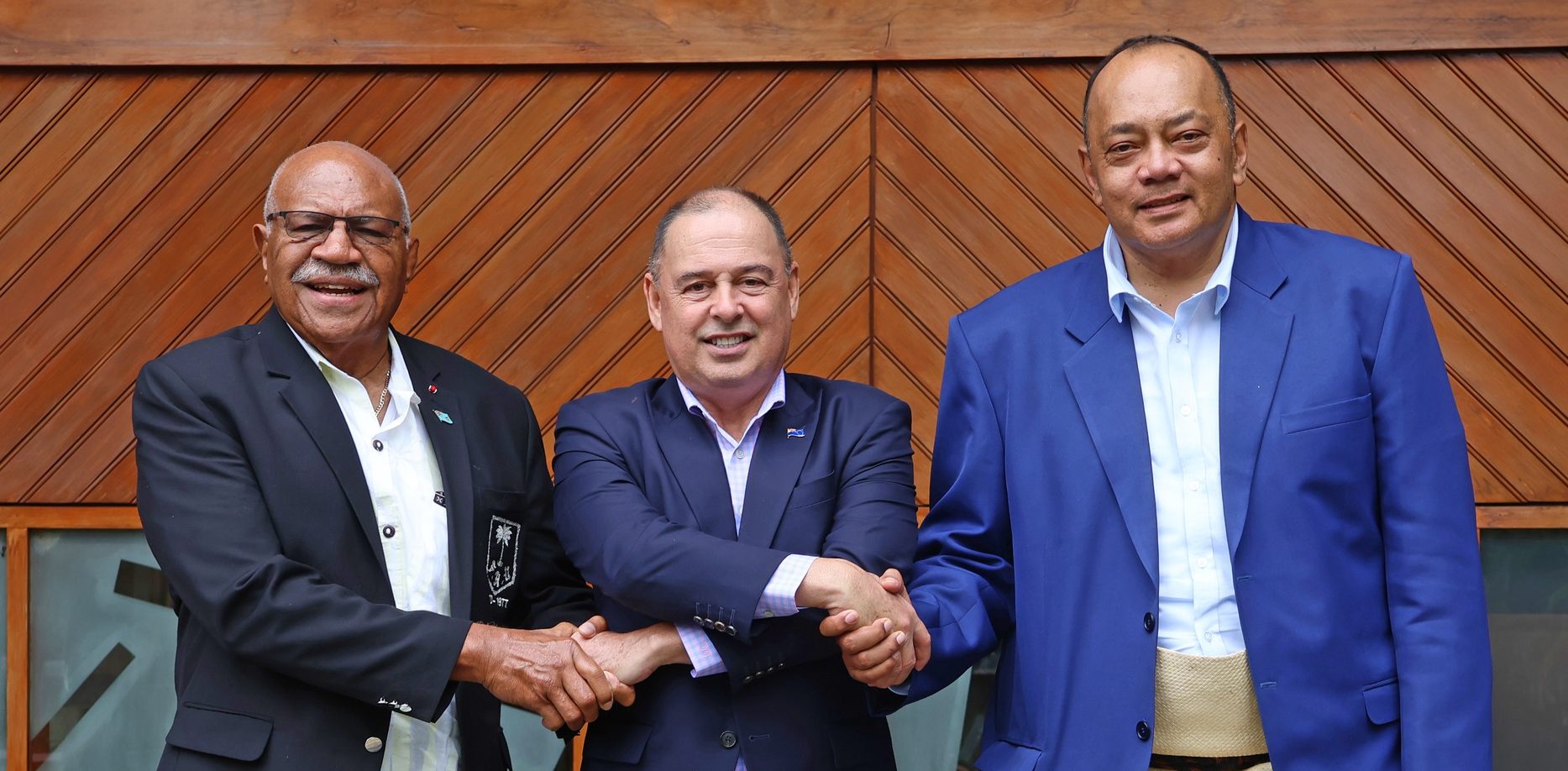Cook Islands Prime Minister and former chair of the Forum, Mark Brown is urging Pacific Island leaders to come together on a collective stance on deep-sea mining, ahead of a key talanoa session set for next month.
The meeting, which will bring together leaders and ministers from across the Pacific, aims to address the contentious issue of seabed mineral extraction and its implications for the region’s marine environment.
Speaking on the upcoming discussions, Brown emphasised the importance of a unified approach, balancing the concerns of countries advocating for a moratorium on deep-sea mining with those that see economic opportunities in the sector.
“You may recall that last year, Forum Leaders endorsed the idea of a Talanoa for member countries to come together and discuss the issues surrounding our seabed minerals.
“It’s about hearing the concerns of those calling for a moratorium, but also understanding the perspectives of those with vested interests in the seabed mineral sector,” PM Brown told Journalists in Nuku’alofa Friday.
The talanoa, scheduled for October, will be a ministerial-level meeting and a key moment for the Pacific to articulate its collective position on deep-sea mining.
Brown outlined four main points that will guide the discussions: ensuring the protection of the ocean and marine environment, supporting sound regulatory and legislative frameworks, using science and evidence as the basis for decision-making, and respecting the sovereign rights of each member country.
“This is an opportunity to first recognise the concerns that all Forum members have regarding the protection of our ocean,” Brown said.
“We need to ensure that any activities related to the deep ocean are governed by robust regulations that prioritise environmental protection. Science and evidence must be at the heart of our decisions moving forward.”
Brown also stressed the importance of respecting the decisions of individual member countries regarding their seabed resources.
“We must respect the sovereign rights of our countries over their own resources—whether they choose to explore, utilise, or protect these resources is a decision for each nation to make,” he stressed.
In addition to the talanoa session, Brown highlighted the ongoing efforts to establish a Centre of Excellence on Deep Ocean Science in the Cook Islands. The centre aims to centralise and expand research on the deep ocean, including its ecology, geomorphology, and chemistry, which has been gathered through years of exploration.
“The establishment of the Centre of Excellence will enable the Pacific to own and manage the growing body of data and evidence on the deep ocean.
“We are currently collaborating with the University of the South Pacific and other institutions, such as the Pacific Community (SPC), to set up this centre and ensure that the data remains in Pacific hands,” Brown said.
Brown stressed the significance of this initiative, noting that the centre will not only serve as a hub for scientific research but also empower Pacific nations to make informed decisions about their ocean resources.
“This is about owning our data and using it to guide our policies and actions on deep-sea mining and beyond,” he added.
As the Pacific grapples with the dual challenges of protecting its marine environments and pursuing sustainable economic opportunities, the upcoming talanoa session will be a crucial step in forging a unified regional approach.
Leaders will need to navigate complex and often conflicting priorities, but Brown remains optimistic that the Forum can find a path forward that respects the diverse needs and perspectives of all its members.
The outcomes of the talanoa will likely set the tone for how the Pacific approaches deep-sea mining in the coming years, with implications for both environmental stewardship and economic development in the region.
